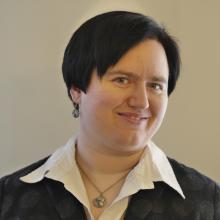Will net metering still thrive in Massachusetts after 2015? That was the topic of a public meeting at BuildingEnergy 15 in Boston on March 5, where the Net Metering Task Force discussed modeling possible future policies.
Dan Burgess, Department of Energy Resources commissioner and co-chair of the task force, expressed gratitude to Northeast Sustainable Energy Association for hosting the meeting. “We’d like to have all our meetings here, if that’s OK,” he said.
Net metering allows electric energy generated locally to offset electric energy provided by an electric utility. The specific details of net metering programs depend on policy choices made by government agencies and regulators.
The task force decided to model two scenarios. One is very similar to net metering as it exists today in Massachusetts. The other alternative would reduce the rewards of net metering, rein back its implementation, and put it more under the control of utilities. In both scenarios, there would be some changes made to attune net metering to the task force’s future goals.
Many attendees expressed strong concern about the more restrictive option. Other commenters said the process was too rushed and not sufficiently visionary.
For example, a letter read, “The limited scope and time frame for the task force creates the risk that larger issues will be ignored and that the rush to a solution will actually set back good energy policy in Massachusetts.”
The authors of the letter proposed that the task force focus on the vision of the next-generation utility in which “utilities should become platform providers, like an iPhone, on which independently developed energy products and services get delivered.”
Utilities should focus on opportunities for demand response, reliability improvements, better power quality, lower costs for all ratepayers, and support for low-income customers, the letter said. “None of the scenarios presented by the task force consultants align with this vision.”
Amy Rabinowitz, vice president and deputy general counsel at National Grid, said that if net metering expands, her company won’t have a sufficient budget to support the costs it entails. She said the cost of clean energy, including efficiency, is approaching the $800 million budget that is available.
Many speakers, both on the panel and in the audience, were impassioned about the importance of virtual net metering to low-income communities. According to Utility Dive, virtual net metering has been a windfall for affordable housing residents in Massachusetts.
The reason virtual net metering is important to low-income communities is that it allows them to share credits from community solar projects. Renters of multifamily housing are not able to install solar panels on their roofs, so they are often interested in participating in community solar gardens.
“I am unalterably opposed to any system that does away with virtual net metering,” said David Colton, town administrator of Easton. “I think going in that direction sets this task force up for failure.”
Geoff Chapin, founder and CEO of Next Step Living, said virtual net metering “should benefit everyone.”
“There’s tremendous demand. I view this as a moral imperative,” Chapin said.
Robert Grace, managing director and president of Sustainable Energy Advantage, acknowledged these concerns. Grace is a consultant for the modeling project. The utility-focused scenario involves “pulling radically back on the benefits of net metering,” he said.
Grace also said it is not possible to look at all of the potential futures in this modeling process. With a deadline of March 31 for the final report and a limited budget for modeling potential scenarios, the consulting team can only review two options.
Our Mission
NESEA advances sustainability practices in the built environment by cultivating a cross-disciplinary community where practitioners are encouraged to share, collaborate and learn.





Add comment